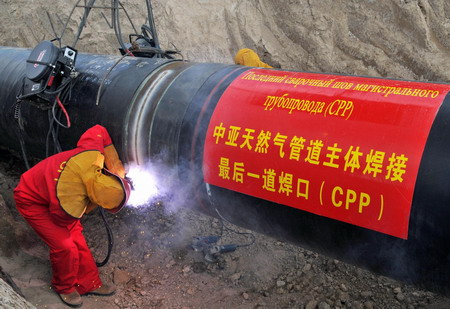EU says China needs to give EU companies fair market access

Fremont Tribune | 11 July 2016
EU says China needs to give EU companies fair market access
By LOUISE WATT
The EU trade commissioner said Monday that China has to give European companies the same kind of market access that Chinese companies enjoy in Europe before discussions can start on a bilateral free trade agreement.
Cecilia Malmstrom said market access and other issues need to be ironed out first in an investment agreement, which is currently being negotiated, to establish "a more level playing field."
In a speech at a university in Beijing, Malmstrom said the 28-member EU supported Beijing’s path toward a more market-oriented economy promised in 2013, but hadn’t seen "much progress."
Recently established free-trade zones in China have made "relatively limited progress or been abandoned and there are still concerns about the enforcement of intellectual property rights, (and) discrimination against EU businesses remains a fact," she said.
She also said China had stepped backward in laws concerning national security and nongovernmental organizations, and in the field of cybersecurity. Concerns remain "about the predictability and transparency of the legal and regulatory systems."
In the past year, Chinese authorities have launched an unprecedented crackdown on lawyers and human rights defenders, passed a law that they said would help NGOs but that subjects them to police supervision, and enacted a national security law that particularly targets online activity.
"Moving China to the next phase of development requires that rule of law be part of that," Malmstrom said. She criticized limitations on lawyers and restrictions on online freedom.
"Barriers to that, whether it’s banning social platforms or by requiring storage of content locally, impinge China’s economic progress as much as freedom of expression," she said.
The EU is China’s biggest trading partner, and China is the EU’s second-largest trading partner, after the United States.
Malmstrom said people ask why can Chinese firms make high-profile purchases of European companies, including tire manufacturer Pirelli and Volvo Car Corp., "when European investors face major barriers, including equity gaps, forced technology transfer or licensing restrictions" in various sectors in China.
"Why do European steelmakers have to lay off workers when they are competing with Chinese firms who benefit from European subsidies? Why do Chinese firms competing in Europe get impartial treatment from independent regulators when the same treatment is not available in China?" Malmstrom said.
"Keeping the EU market open is a benefit for us and for China but it requires us to address these questions of reciprocal openness," the trade commissioner said.
Chinese officials have previously tried to reassure foreign companies they are welcome in its economy. In March, Xu Shaoshi, chairman of the Cabinet’s National Reform and Development Commission, pledged to "promote two-way opening up and liberalization" before an audience that included executives of top global companies.
Malmstrom said that the EU’s long-term goal is a free trade agreement with China, "but we need to get this investment agreement first."
"This is to establish a more level playing field in investment, and until we have that it will be very difficult to enter into the specific free trade negotiations," she said.
Malmstrom spoke and answered questions from students at the University of International Business and Economics, ahead of a China-EU summit Tuesday and Wednesday.
Malmstrom also said that she hoped to conclude an EU-U.S. free trade agreement, which has been under discussion for three years, before the end of President Barack Obama’s administration. The 14th round of negotiations start Monday in Brussels.





